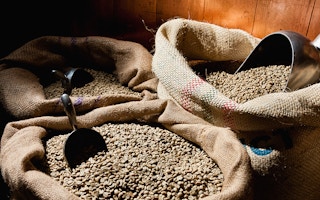I remember a time when the only real choice you had to make about your coffee was to add cream or sugar.
Now? A dizzying array of brands, beans and blends competes for your taste buds (and your pocketbook). Soon — if I have my way — there will be one thing that coffee drinkers will not have to make a choice about: whether the brew they’re drinking is sustainably sourced.
On National Coffee Day, coffee shops across the United States will offer free cups of java to get you in the door. What is remarkable to me, having worked in the coffee world for over 15 years, is that despite cutthroat competition for your coffee money, these companies are starting to work together for a shared goal: to ensure a sustained supply of coffee that is good for nature and for the 25 million people who grow the crop.
How? It starts with sourcing.
More roasters and retailers are committing to source their coffee only from producers who grow it sustainably. Many of these companies are part of the Sustainable Coffee Challenge, a coalition of 80 actors from across the coffee sector working to make coffee the world’s first completely sustainable agricultural product.
To date, companies including Starbucks, Nespresso, McDonald’s, Keurig and now Walmart — the world’s largest retailer — have made such commitments, vowing to sustainably source their coffee by a certain date.
“
These new commitments send a clear signal to farmers that there is truly a market for a sustainable product.
You might think that this amounts to lip service, an empty p.r. exercise aimed at burnishing these companies’ “green cred.”
It’s not.
What these commitments do is increase demand for sustainable coffee within the marketplace. Historically, coffee traders, roasters and farmers have said that there is not enough demand for a sustainable product — that is, consumers have not been willing to pay more in sufficient numbers to ensure sustainability.
As a result, efforts to transition the sector to sustainable production have fallen short. These new commitments send a clear signal to farmers that there is truly a market for a sustainable product — the reach of these retailers is too large to ignore.
You might think it’s unusual for companies supplying us coffee to push demand instead of you and me.
In this case, it’s not.
These companies know that their supply of coffee faces an uncertain future as the climate changes.
A recent study shows that the land suitable for growing coffee worldwide could be cut in half as rising temperatures and extreme weather wreak havoc on crops.
These companies recognise that laying the groundwork for sustainable sourcing now is in their own best interest over the long term.
Complete sustainability in the coffee sector? You might think it sounds like a pipe dream.
The truth is, we’re not that far off.
A recent report shows that 48 per cent of the global coffee crop was produced according to a sustainability standard. This figure doesn’t account for coffee sourced via programs where companies make investments that support farmers in the transition to more sustainable production.
It’s a good start, but more commitments are needed to ensure we can all still enjoy a good cup of coffee 20 years from now, without razing tropical forests in the process.
We hope for a day when consumers no longer have to choose between a sustainable cup of coffee and an unsustainable cup. If the Sustainable Coffee Challenge succeeds, that day might be sooner than you think.
Bambi Semroc is the senior strategic advisor in Conservation International’s Center for Environmental Leadership in Business.
This piece was published with permission from Conservation International.











